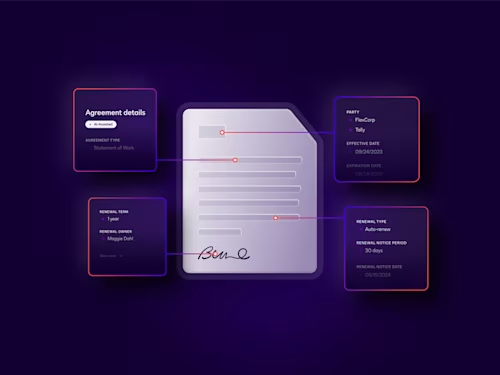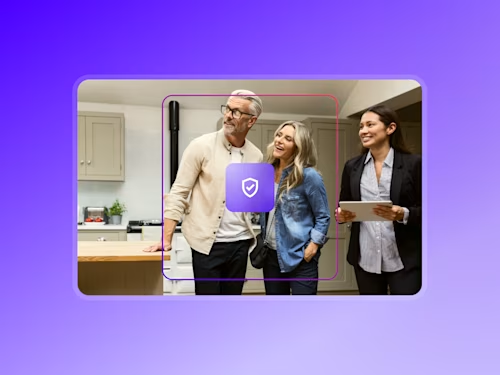
It’s Not Too Late for Climate Action
Take action on climate change with Iesha Berry, chief talent and diversity officer at Docusign and Patrick Flynn, SVP sustainability at Salesforce.

Addressing an environmental and societal issue as massive as climate change can be overwhelming. It often seems that trying to reverse the current warming trend is futile, or that it’s solely the responsibility of governments and large enterprises, with individuals left powerless to make a difference. But governments and businesses are all made up of individuals, and each person who commits to taking small steps toward sustainability can help make big changes.
Taking action on climate change—both individually and collectively—was the topic of a recent discussion hosted by Iesha Berry, VP, chief talent and diversity officer at Docusign. The session featured expert advice from Patrick Flynn, SVP sustainability at Salesforce, and Shay Eliaz, principal with Monitor Deloitte.
Why is climate action necessary?
The discussion began with the notion that we’re at an environmental tipping point. If we’re going to make positive, sustainable changes, we must act now. Humans are currently consuming the planet’s resources faster than they can regenerate, and this overconsumption is made worse by our many activities that pollute the environment.
Put simply: There’s only one Earth, and we have a moral imperative to care for it, leaving it better than we found it for future generations.
The Intergovernmental Panel on Climate Change (IPCC) believes that we need rapid, far-reaching and unprecedented changes across all industries to achieve sustainability targets. Regulators are starting to require companies to disclose climate-related activities, and investors and customers are showing a clear preference for sustainable business practices.
With sustainability now a priority, businesses need to fundamentally transform how they operate to compete in the marketplace, deliver value to their stakeholders and attract and retain the best talent. The time is right for organizations to make meaningful change and each of us can help.
What individual actions can we take?
Our current climate emergency means immediate action is required to make positive environmental changes. We can all continue to make impactful choices for our planet every day. Doing something is always better than doing nothing. Taking any kind of action can help reset the thinking that individuals are too insignificant to make an impact.
Many actions like reducing travel, using cleaner forms of transportation, recycling and going digital may seem small in the face of this monumental challenge, but they all add up. And communicating with others about the steps you’re taking can help motivate them. Talk with friends and family. Reach out to the person in charge of sustainability at your company. Vote with your feet, and spread the word that everyone can make a difference.
What kinds of environment-positive changes can organizations make?
Thankfully, the prognosis is not all doom and gloom. For too long, businesses have deprioritized, or at least been apprehensive about, committing to the types of fundamental changes needed to make a difference. But now, taking climate action is not only a moral imperative, it’s also a huge business opportunity.
Organizations can—and should—do more to help the environment by using their greater resources and influence. For example, Salesforce is helping sequester 100 gigatons of carbon by conserving, planting and restoring 1 trillion trees. And they’re now requiring their suppliers to set science-based carbon emission targets, establish a plan for reducing emissions, and deliver their services on a carbon-neutral basis, all while submitting to reporting requirements.
Similarly, Deloitte is committed to using its global reach and influence to help clients transform their operations while addressing its own direct and indirect emissions. One way they are doing this is by cutting employee travel in half while making the company’s global real estate footprint more renewable and sustainable.
Docusign pioneered e-signature technology and is now helping customers fully digitize their end-to-end contract and agreement processes, reducing waste and wasteful actions. Since 2003, Docusign has helped customers save more than 6 million trees, 55 billion sheets of paper and 5.9 gallons of water.
All three organizations are deeply committed to digital transformation, a key driver of sustainable business operations.
What role does digital transformation play?
The technologies needed to take bold climate action already exist. Organizations are starting to use renewable energy sources to power their buildings and data centers and implement digital communication tools to enable remote and hybrid workforces.
The way businesses and customers come together in agreement is another area ripe for transformation. Contracts undergird and formalize how business gets done. Digitizing and automating these processes is essential for individuals and organizations looking to make a positive climate impact.
As we come together to confront this challenge, digital transformation serves as a foundational action for reducing emissions by replacing inefficient processes like paper-based agreements and in-person interactions.
Agreements define relationships between individuals, organizations, suppliers, customers, partners and governments. And all of us—individuals and institutions alike—must work in agreement to tackle the tremendous task of repairing our relationship with our planet.
Act now
To learn more about this critically important topic, don’t miss this informative discussion featuring sustainability leaders from Docusign, Salesforce and Deloitte. Register for Momentum 2022 On Demand with the link below:
Related posts
Docusign IAM is the agreement platform your business needs


